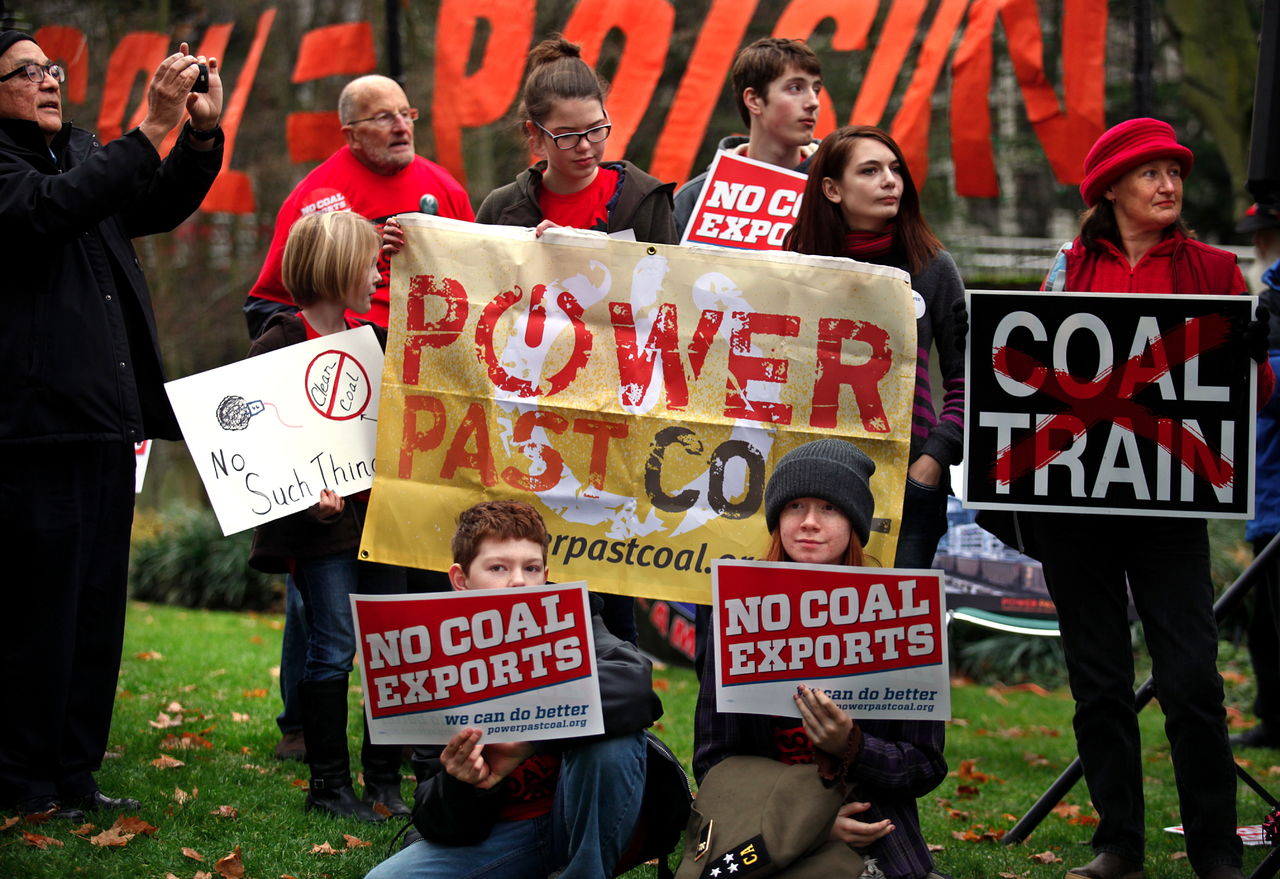The Pacific Northwest faces a growing surge of crude oil trains and barges, coupled with proposals for massive coal export terminals that will snarl traffic, delay freight and threaten the health of our communities. Recent action by Congress to lift a long-standing ban on oil exports is likely to accelerate the increase in oil train and barge traffic and the risk of devastating spills, fires and explosions.
The U.S. Army Corps of Engineers is expected to make a decision soon on permits for the Gateway Pacific Terminal, the proposed shipping terminal at Cherry Point near Bellingham that would violate the Lummi Nation’s treaty rights and have significant negative impacts on Snohomish and King counties for generations to come.
The proposed coal terminal could result in as many 18 mile-and-a-half long trains rolling each day through the heart of major cities — including Seattle, Tacoma and Spokane — and countless smaller communities along the Burlington Northern Santa Fe rail line.
Cities built along shorelines and bisected by rail — including Edmonds, Mukilteo, Everett and Marysville— will be hit especially hard. A 2014 study commissioned by the Puget Sound Regional Council found that roads could be blocked by trains an additional 38 minutes to one hour and 26 minutes per day. These projected delays would be compounded by rapidly increasing rail traffic carrying highly volatile crude from the Bakken oil fields in North Dakota.
We are especially concerned about the economic, ecological and cultural impacts that the proposed terminal would have on the Lummi Nation. If approved, Gateway Pacific would destroy a 3,500-year-old ancestral sacred site and violate the rights of tribal members to harvest salmon and shellfish. The Lummi Nation in Whatcom County has the largest Native commercial fishing fleet in the United States, and the proposed terminal would negatively affect not just the way of life for the Lummi people but the livelihood of many families.
The Lummi Nation has spent years researching the impacts of a shipping terminal at Cherry Point. The effects that the terminal would have on treaty rights cannot be mitigated. Together with the Northwest Alliance, a coalition of nine tribes dedicated to the protection of Cherry Point, Lummi has called on the Corps to uphold treaty fishing rights and reject all permits to build the Gateway Pacific Terminal.
It’s in everyone’s interest to protect treaty fishing rights. Salmon and shellfish are key indicators of the health of Salish Sea, and are at the cultural center of the Pacific Northwest. The proposed terminal threatens to further degrade critical habitat for our iconic salmon.
These are truly regional and national issues, so it’s important that we form a unified front for our shared interests. That’s why the Northwest Alliance met with the Safe Energy Leadership Alliance in Everett on Thursday to discuss a full assessment of safety, environmental and economic impacts from oil and coal transport and export. SELA is a coalition of more than 165 local, tribal and state elected leaders representing jurisdictions across the Pacific Northwest and British Columbia.
The time for action is now. A federal study last year predicted that trains hauling crude oil and ethanol will derail 10 times each year, endangering lives and causing more than $4 billion in damages. The potential risk will likely increase now that oil companies can export their product overseas. While global demand for coal has decreased significantly, we still face active proposals for coal terminals in the Northwest and British Columbia.
Local communities assume greater risks and costs while oil and coal companies reap the benefits. It’s an inequitable and unjust pattern we are determined to stop.
We’ve proven that we can work together to make a positive difference. The governors of Washington and Oregon have signed new laws introduced by SELA members to strengthen safety regulations. In British Columbia, SELA members joined forces to call on the Canadian government to expand the scope of the risk assessment and response planning for oil transport by rail.
With a decision pending from the Corps on a proposed coal terminal, and federal legislation opening the door for even more oil train and barge traffic, there’s more work to do to protect our region and our communities.
Dow Constantine is the King County executive and chairman of SELA. Tim Ballew II is the chairman of the Lummi Nation and leads the Northwest Alliance. For more information on SELA, go to www.kingcounty.gov/sela.
Talk to us
> Give us your news tips.
> Send us a letter to the editor.
> More Herald contact information.

























